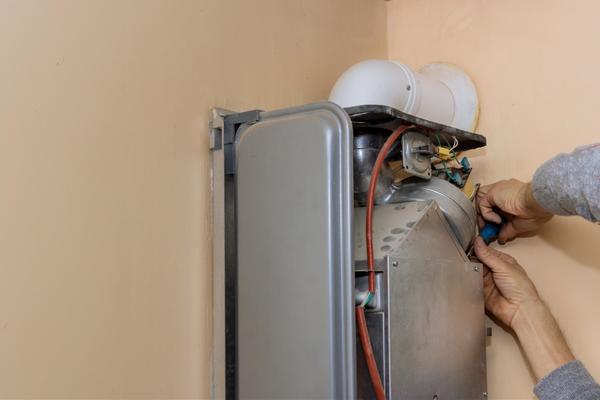Cost To Install Gas Boiler in MN

Are you considering installing a new gas boiler in Minnesota? Gas boilers efficiently heat water and maintain central heating in your home, especially during the chilly months. Typically, a gas boiler has a lifespan of around 15 years, after which you may start thinking about a replacement.
One of the primary concerns for homeowners in this situation is the cost of installing a new gas boiler in MN. Prices can vary widely, ranging from $8,000 to $20,000. Several factors influence the final cost, including:
This blog aims to unpack these variables, providing a clearer understanding of what to expect financially when planning for a gas boiler replacement in Minnesota.
Need a new boiler in MN?
MSP Heating and Air has spent the last century supporting homeowners through dependable boiler installations. With every project, we promise prompt, friendly, and honest service. We're committed to your comfort and will go the extra mile to meet your needs.
Boiler Size
The first factor that influences cost is boiler size. This doesn't refer to the physical size of the appliance; rather, it refers to the amount of BTUs (British Thermal Units) or the amount of energy it takes to heat one pound of water by one degree Fahrenheit.
A standard residential boiler has an output of 100,000 to 250,000 BTUs. The more BTUs, the higher the cost will be. To determine which size you need, consider the following:
- Home size: Homes with greater square footage will require larger boilers.
- Age of home: Older homes generally have poorer insulation and will thus need stronger heat.
- Type of heating system: Do you have a low-temperature system (such as radiant heat) or a high-temperature system (such as fan coils or radiators)? Low-temperature systems typically need higher heat output capacities to fulfill heating demands.
Unsure which size is right for you? Our experts can evaluate your home and provide a personal recommendation.
Converting to Natural Gas
When it comes to fuel sources, gas boilers have three options: natural gas, propane, and oil. Of these, natural gas is the most cost-effective and efficient. If you're currently using propane or oil and are interested in switching to natural gas, you'll need to do the following:
- Install a natural gas line: If you don't already have a natural gas line, you'll have to install one first.
- Check other appliances: Do you have other appliances that run on propane or oil? If so, you'll need a professional to install conversion kits so that they accept natural gas.
- Remove tanks: Most homes that use propane or oil sources have outdoor tanks. Once you switch to natural gas, you'll have to remove these tanks.
Implementing the necessary changes brings higher upfront costs. However, due to its better efficiency, natural gas can help save money in the long run.
Boiler Efficiency
Another important factor is your boiler's efficiency, or its AFUE (annual fuel utilization efficiency). Represented as a percentage, this number refers to the amount of gas you're actually using. For instance, say your boiler has an 85% AFUE; 85% of the consumed energy goes towards heating the home, while 15% is lost as vented exhaust. This also means that you're spending money on 15% of energy that's not being used.
A standard gas boiler has an AFUE of 80% to 85%. Higher efficiency models, meanwhile, have an AFUE of 90% to 99%. Installing a high-efficiency model is more expensive, but it saves money over time by reducing energy waste.
Warranty Coverage
Before replacing a boiler, consider your warranty coverage. Manufacturers provide warranties to guarantee a product's quality and longevity. Generally, coverage decreases as the boiler ages. For example, a manufacturer may cover 100% of replacement costs in the first two years, 75% of costs in the next five years, and so on. You can also pay for additional warranties, giving you extended coverage as your boiler gets older. The more coverage you have, the less a boiler replacement will cost.
The Contractor You Hire
The final factor to consider is the contractor you hire. Ideally, you want a team that offers high-quality work at a fair rate, such as MSP Heating and Air. We never compromise when it comes to quality, and we pride ourselves on honest, transparent service. When you work with us, you can rest assured that you're receiving the best boiler for your home.
Looking for a 5-star boiler installation? Contact MSP Heating and Air Today!
Since 1918, our team has delivered high-quality boiler installation services to homeowners across Minneapolis-St. Paul. After evaluating your home and preferences, we can help you find the right boiler. Our excellent workmanship, paired with our highly personalized service, has earned us a 5-star reputation.
